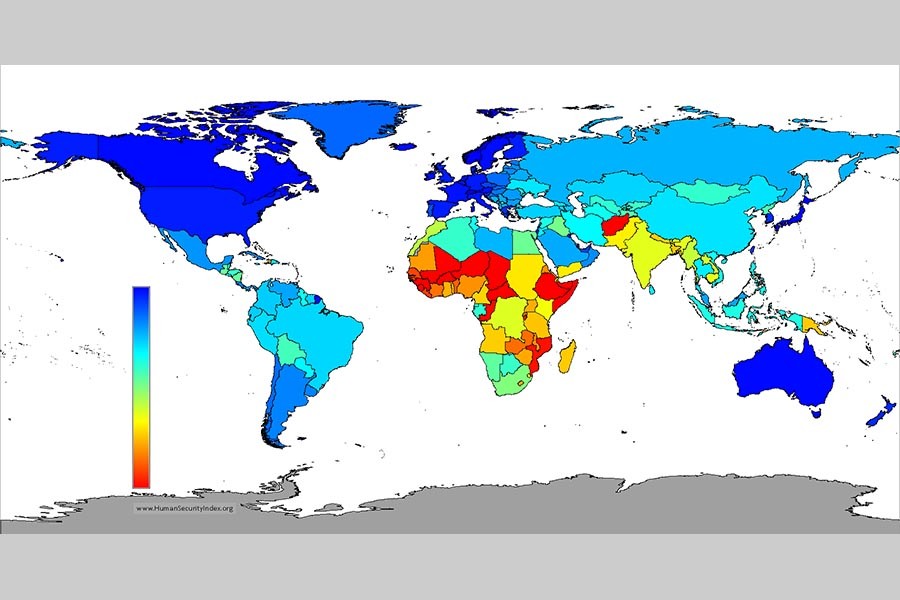Bangladesh's ascendancy to 136th position from 139th in the global Human Development Index (HDI) may not be considered a giant leap but it still is indicative of significant progress for the country. A similar move up by three notches in 2015 is indicative of its unwavering journey on the road to some modest kind of inclusive development. Had it been even more inclusive and disfavoured serving coterie interests, the country would possibly be able to look after the overall human development even better. The New York-based Wealth-X's report sheds some light on how disparities of income are standing in the way of bridging the inequality gap. In a country where families go broke on account of the fat medical bills required for treatment of their members suffering from a few serious diseases, human development gets severely compromised.
So far as availability of food is concerned, the country has made remarkable progress on this front. But its most outstanding performance is in the area of reducing child and maternal mortality. This, together with sanitation and hygiene maintained courtesy of sealed latrines in villages, has pulled the country out of the rut. Literacy rate has gone up but education at the highest level is best understood as a process of distribution of information and knowledge already known rather than creation of knowledge. Yet education among girls has had a fair reflection on human development. Narrowing the gender discrimination in education pays in spades because when mothers take interest in their children's health and education, it makes a huge difference in the status of families. Children especially cared for are more likely to have a better growth -both physical and mental.
Yet endemic poverty and lack of opportunities for education are withholding the country's progress in terms of human well-being for a section of people at the bottom of the rung. Malnourished and neglected, here is a population that needs especial care if its status as dignified citizens has to be raised to a tolerable level. In this capital, there are floating people, beggars and orphans who live a subhuman life. Even many of those living in the sprawling slums of Dhaka are deprived of the minimum required living conditions. These are areas where HDI suffers most and a caring administration cannot allow accumulation of unlimited wealth in a few hands at the utter deprivation of a large number of people.
Many argue that the reduction of the number of the extreme poor is a good sign. More people are coming out of the poverty trap and the majority of the population have been earning enough to lead a decent life -far better than their forefathers. If this is true, what worries social thinkers and intellectuals is the division of society on the line of classes. The top tier of society is super rich and have monopolised most of the privileges and opportunities on offer. A more rational distribution of wealth is needed in order to avert conflict and rift in society.


